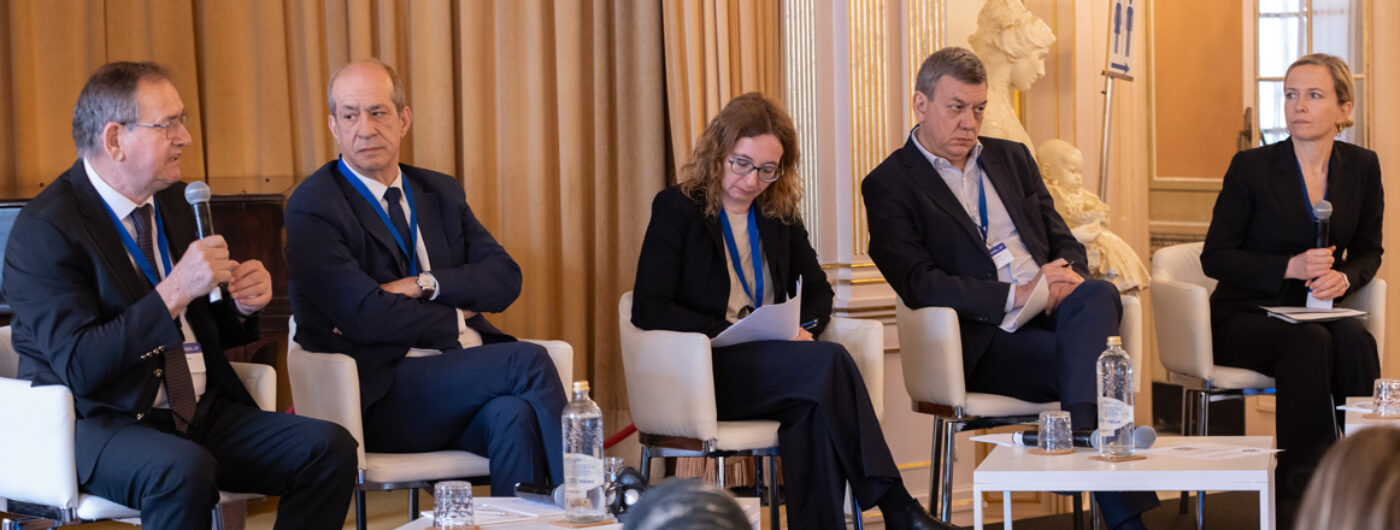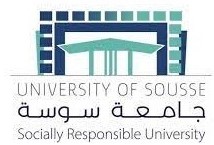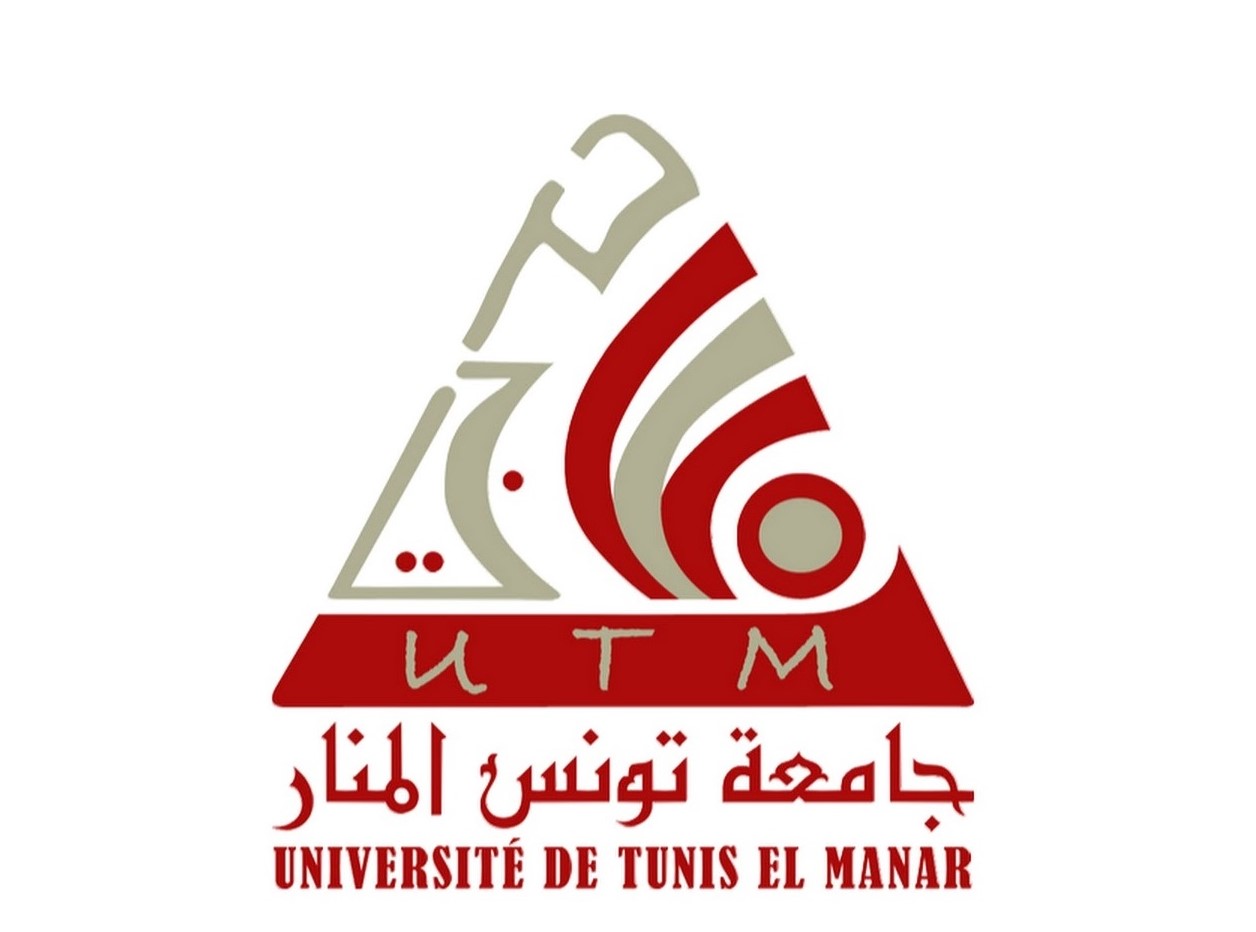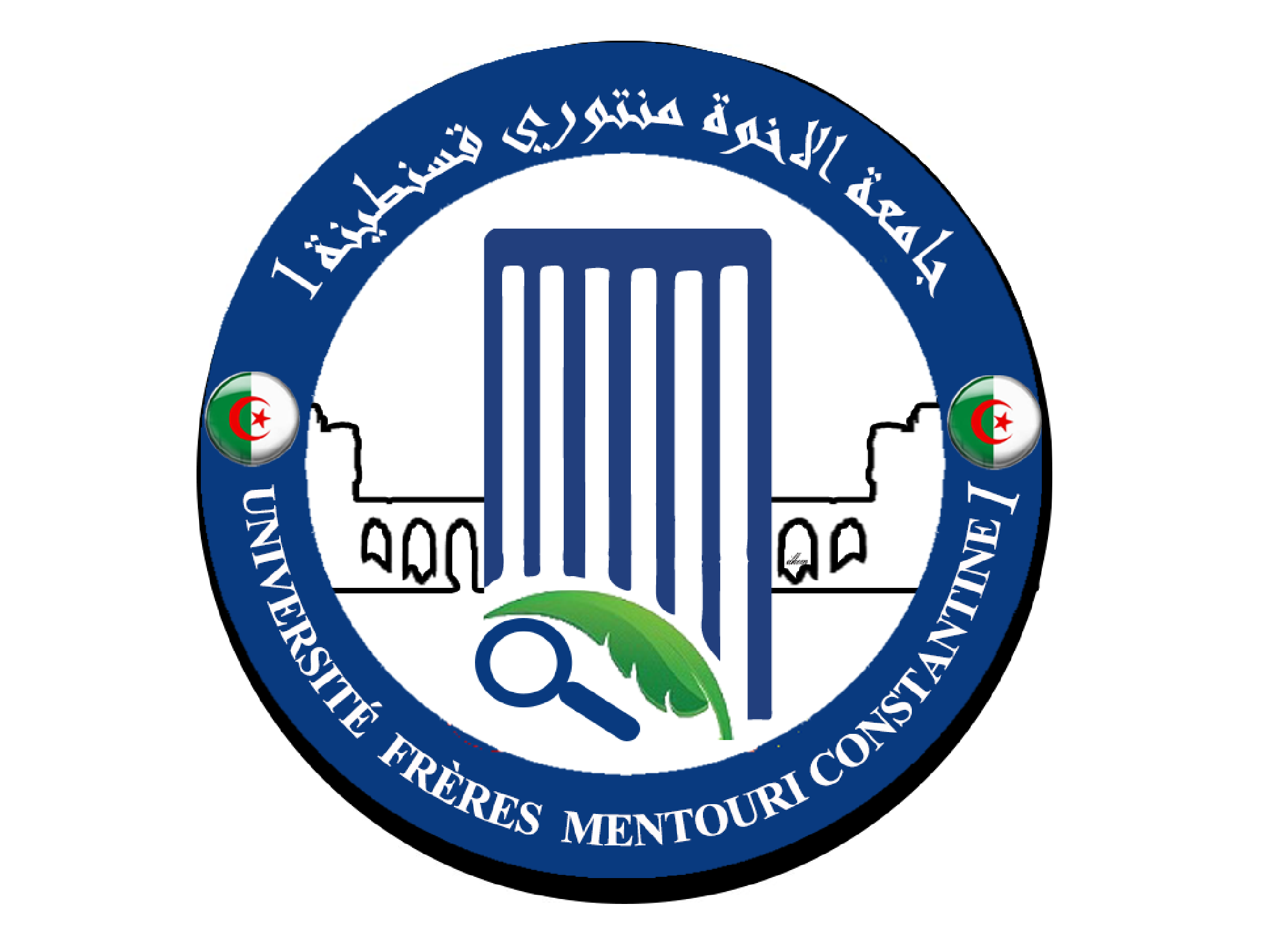
What if gender equality became a concrete driver of transformation in your university or department? This is the ambition of WE4LEAD – Women’s Empowerment for Leadership and Equity in Higher Education Institutions, a project developed within the Tethys network and implemented since 2023 across 9 universities in 6 countries on both shores of the Mediterranean. Funded by the Erasmus+ CBHE programme, WE4LEAD aims to promote women’s access to leadership positions and to support higher education institutions in moving towards fairer, more inclusive and more effective governance.
Building on three years of proven results, the teaching and research teams from the partner universities (Aix-Marseille University, Lebanese University, Antonine University, University of Tunis El Manar, University of Sousse, University of Constantine 1, University of Constantine 3, Universidad Autónoma de Madrid, Sapienza Università di Roma), with the support of RESUFF, have designed an innovative MOOC to share their methodology and practical tools.
An open MOOC for everyone — women and men — who want to understand gender issues and take concrete action in their professional and institutional practices.
WE4LEAD offers immediately actionable resources:
One clear objective: moving from good intentions to measurable action within your institution or organisation.
Approximately 3 hours in total. 5 thematic sections, each including 2–3 chapters. Videos, written materials and animated introductions. Quizzes to validate learning outcomes.
Whether you are a student, academic staff member, administrative staff member or member of a management team, no prior knowledge is required.
A certificate badge issued by FUN is awarded to participants who complete the full course.
14 January 2026 — Antonine University (UA), Lebanon
To strengthen the dissemination of the WE4LEAD project, an international webinar was held on 14 January 2026 and brought together three experts to address gender equality and women’s leadership. The session was moderated by Ms Nathalie Rouphaël (Antonine University).
The webinar featured the following contributions:
This initiative reflects Antonine University’s commitment to gender equality, women’s leadership and more inclusive university governance.
11 December 2025 — University of Sousse, Tunisia
As part of the Anti-harassment Awareness Day, and in continuity with the series of training sessions delivered under the WE4LEAD project (Women’s Empowerment for LEADership and Equity in Higher Education Institutions), the University of Sousse organized, on 11 December 2025, a training and awareness day for the General Secretaries of the University of Sousse.
This initiative reflects the University of Sousse’s commitment to a safe, inclusive and respectful university environment, grounded in equality, violence prevention, and the promotion of good institutional practices.
The day was marked by the participation and contributions of national and international partners of the WE4LEAD project, including:
Discussions helped strengthen administrative leaders’ capacities in harassment prevention, the setup of institutional mechanisms, and the promotion of equity and responsible leadership within higher education institutions.
This initiative confirms the commitment of the University of Sousse and its partners to sustain training and awareness actions, in line with the objectives of the WE4LEAD project.
13 November 2025 — University of Sousse, Tunisia
The University of Sousse organised on 13 November 2025 a study day dedicated to gender issues in scientific research. The event brought together researchers, lecturers and students committed to equality and academic innovation.
The programme featured several key talks, including:
A series of poster presentations addressed topics ranging from inclusive design to the representation of the body between painting and artificial intelligence. Thematic workshops led by Prof. Sana Harbi, Prof. Nihed Mrabet and Ms. Dorra Ben Alya explored intersections between art, science and technology.
The study day fostered rich interdisciplinary exchanges and strengthened reflection on how to integrate the gender dimension into scientific research.
16 October 2025 — ENISO (Sousse) | 9 October 2025 — University of Sousse, Tunisia
Under the WE4LEAD project, the University of Sousse organised two training-of-trainers sessions on “Promotion and recruitment without gender stereotypes”. The first took place on 16 October 2025 at ENISO, and the second on 9 October 2025 at the University of Sousse.
The sessions brought together a diverse audience, including:
The main objective was to strengthen the capacities of trainers and institutional leaders to identify and deconstruct gender stereotypes in recruitment and promotion processes, and to support fair, inclusive practices based on merit and competencies.
The programme addressed unconscious bias, tools to ensure transparent evaluations, and institutional good practices that foster an inclusive academic environment. Interactive sessions allowed participants to share experiences and build concrete action strategies.
19 September 2025 — Faculty of Arts and Humanities of Sousse, Tunisia
Within the WE4LEAD project, the University of Sousse organised on 19 September 2025 a training session at the Faculty of Arts and Humanities of Sousse on the theme: “Recruitment and promotion without gender stereotypes”.
The training brought together teaching staff, institutional officers and members of various university structures to reflect on how to promote more equitable recruitment and career-advancement practices in higher education.
Participants were introduced to tools, analytical frameworks and courses of action designed to tackle gender bias and foster an inclusive academic culture based on equal opportunities.
The session was led by:
27 June 2025 — Marhaba Royal Salem Hotel, Sousse, Tunisia
As part of the WE4LEAD – Women’s Empowerment for Leadership and Equity in Higher Education Institutions project, an information day was held on Friday, 27 June 2025 at the Marhaba Royal Salem Hotel in Sousse. The event brought together representatives, institutional leaders and partners committed to promoting women’s leadership and equity in higher education.
The meeting presented the project’s objectives, areas of intervention and priority actions implemented at national and international level. Speakers shared preliminary results, ongoing initiatives and future development perspectives.
The programme included an institutional opening session, a detailed presentation of WE4LEAD actions (training, support to women leaders, strengthening of governance structures), a discussion space for sharing experiences and recommendations, and a moment of inter-institutional collaboration to identify needs, common challenges and opportunities for synergy.
This day was a key milestone for strengthening dialogue, consolidating partnerships and reaffirming the commitment of all involved institutions to inclusive, sustainable and equitable women’s leadership in higher education.
Tuesday, October 28 — Constantine, Algeria
As part of the WE4LEAD Project, the team at the University of Constantine 3 delivered a training session focused on equal opportunities in university recruitment and promotion. The session emphasized that teaching and administrative staff must be selected strictly on competencies, qualifications, and merit, with the objective of building a more diverse and high-performing work environment for the institution.
Participants noted that the impact of WE4LEAD is now clearly visible at UC3 and is beginning to deliver concrete results. Building on this momentum, there was a unanimous request to repeat the training across all faculties so that teams can regularly update good practices and further reduce the risk of errors or biased judgments when handling applications and interview panels.
Attendees also recommended expanding the next sessions to include Deans, Presidents of Scientific Councils, and anyone likely to serve on recruitment juries—whether academic staff or administrative personnel involved from dossier reception through evaluation and candidate hearings.
September 23, 2025 — Tunis, Tunisia
The University of Tunis El Manar (UTM) and the CAWTAR (Arab Women Center for Training and Research) signed an agreement under the WE4LEAD Project to strengthen cooperation in training, research, and scientific dissemination, while promoting gender equality in higher education.
Funded for 36 months by the Erasmus+ Capacity Building in Higher Education (CBHE) program, the project began on March 1, 2023 and will conclude on February 28, 2026. WE4LEAD aims to drive a profound societal transformation through coordinated and measurable actions carried out by the nine universities forming its consortium.
The agreement, signed with Ms. Soukaina Bouraoui, Executive Director of CAWTAR, launches programs of cooperation in training, research, and scientific publication, as well as the organization of conferences and seminars on key themes such as gender-based violence, the green economy, and sustainable development. It also promotes the exchange of experience to strengthen women’s research capacities.
As part of WE4LEAD, UTM has implemented concrete mechanisms: the appointment of a SDG 5 Ambassador (Gender Equality), the creation of a Parity and Respect Unit, and the development of a Gender Equality Plan. These initiatives contributed to UTM achieving 14th place worldwide for SDG 5 “Gender Equality” in the 2025 Times Higher Education Impact Rankings.
Through this initiative, UTM reaffirms its commitment to developing a forward-looking strategic plan that places equality, empowerment, and innovation at the heart of its academic and research mission.
Attendees:
University of Tunis El Manar (UTM):
Arab Women Center for Training and Research (CAWTAR):
September 23, 2025 — Tunis, Tunisia
On Tuesday, September 23, 2025, the ALECSO Chair for International Commercial Arbitration and the University of Tunis El Manar (UTM) signed a memorandum of understanding aimed at strengthening women’s involvement in the field of arbitration. This agreement, signed by Professor Moez Chafra, President of UTM, and Ms. Najet Brahmi, Director of the ALECSO Chair, is part of the We4Lead project co-financed by the European Union. It highlights the importance given to gender equality and parity in both academic and professional settings.
During the ceremony, Professor Chafra reaffirmed the commitment of the University of Tunis El Manar to parity and respect. Ms. Najet Brahmi emphasized that the ALECSO Chair, with its strong sense of social responsibility, actively contributes to achieving the Sustainable Development Goals, in particular SDG 5 dedicated to gender equality.
The signing ceremony was attended by Professor Mustapha Ben Ltaief, Dean of the Faculty of Law and Political Science of Tunis, Ms. Halima Wanada, SDG 5 Ambassador/UTM and scientific coordinator of the We4Lead project, and Ms. Lobna Zakraoui, Head of International Cooperation, along with several UTM executives and officials. The Arab Women’s Center for Training and Research (CAWTAR), represented by its Director, Ms. Soukeina Bouraoui, also took part in the ceremony.
The meeting concluded with a double tribute by the President of UTM to the Faculty of Law and Political Science of Tunis and to the ALECSO Chair for their commitment and contribution to promoting gender equality and women’s advancement in the field of international arbitration.

August 29, 2025 — Avignon, France
On Friday, August 29, 2025, Isabelle Régner, scientific coordinator of the WE4LEAD project, gave a talk at Lycée Aubanel in Avignon on the threats posed by gender stereotypes in the educational environment.
The school launched a new academic year under the theme of gender equality, with a systemic approach engaging all staff and covering every aspect of student life. The day included thematic workshops (diagnosis, gender equality & guidance, gender equality & school climate, gender equality & arts/culture, communication & partnerships) and a lecture by Isabelle Régner, University Professor in Social Psychology (LPC UMR CNRS 7290) and Vice-President for Gender Equality and the Fight Against Discrimination at AMU.
This conference provided an opportunity to present WE4LEAD and the stakes of equality in higher education across the Mediterranean region, particularly within the nine partner universities, highlighting the concrete actions and results observed six months before the project’s conclusion.
August 28, 2025 — Limoges, France
On Thursday, August 28, 2025, Isabelle Régner, scientific coordinator of WE4LEAD and Vice-President for Gender Equality and the Fight Against Discrimination at AMU, spoke at the back-to-school seminar for the management staff of the Limoges Academy.
Beyond national and academic priorities, one of the key focuses was the fight against determinism. In this context, Isabelle Régner gave a lecture on “The effects of gender stereotypes on the performance of girls and boys in STEM,” a central theme of WE4LEAD, presenting tools developed by the nine partner universities and the significant results achieved in reducing inequalities in recruitment, promotion, salaries, and mobility.
She also detailed the WE4LEAD training programs on gender stereotypes and female leadership in academia, aimed at promoting more equitable and sustainable practices.


June 4, 2025 — Paris, France
On June 4, 2025, Isabelle Régner, Vice-President for Gender Equality and the Fight Against Discrimination at Aix-Marseille University (AMU) and scientific coordinator of the WE4LEAD project, was heard at the French Senate as part of the work of the Delegation for Women's Rights on the theme "Women and Science," chaired by Ms. Dominique Vérien. She was heard alongside Denis Bertin, Vice-President in charge of the Safe Place for Science program at AMU.
During her intervention, Isabelle Régner addressed gender stereotypes and their impact on inequalities in recruitment, promotion, salaries, and mobility between women and men in academia — a central topic of WE4LEAD — as well as the need for a strong institutional framework (both local and national) to sustain these actions. She stressed the need for strong political support for equality missions:
“We must not underestimate the seriousness of the situation: we are facing one of the world’s greatest democracies that is questioning women’s rights. Attacks against these rights are multiplying, and universities are particularly affected. (...) Currently, universities that take the lead in offering training on gender equality or combating racism suffer from negative media pressure and see some of their funding cut. This is a reality that is beginning to emerge, including in France. What is happening is serious. We must be aware of this at all levels. We need the support of our political leaders to legitimize the actions we are asked to carry out. It is essential to ensure a solid political framework, as well as sufficient human and financial resources to implement these initiatives, in order to avoid putting at risk those who are committed to this struggle on a daily basis.”
The video recording of the intervention is available online (Senate). Direct link: Senate video.
Since 2020, Aix-Marseille University has been leading an awareness-raising initiative targeting members of academic recruitment committees. This teaser highlights the tangible impact of the action, particularly within the Faculty of Science, where the proportion of women recruited as full professors rose from 14% to an average of 50% over five years. Continued participation in this initiative has proven to be closely linked to improved gender balance. Discover this inspiring and effective approach in the short video below.

Barcelona, 9 April 2025 — The Union for the Mediterranean (UfM) convened its National Focal Points Meeting on Higher Education at its headquarters in Barcelona. Representatives from over 20 UfM Member States and major regional higher education stakeholders gathered to push forward a coordinated Euro-Mediterranean higher education space.
Opening the event, UfM Secretary General Nasser Kamel emphasized the transformative role of education in fostering development, resilience, and peace. Discussions focused on launching a new UfM Platform for Higher Education, expanding funding and cooperation, and promoting South-South mobility and regional university alliances. The event featured contributions from EMUNI, UEMF, UNIMED, Téthys, and the Erasmus Student Network.
The meeting also supported the upcoming UfM Ministerial Conference and contributed to shaping a New Pact for the Mediterranean, coinciding with the 30th anniversary of the Barcelona Process.
Read the full article here: UfM Official Website
On March 24, 2025, from 3:00 pm to 5:00 pm (Paris time), RESUFF is organizing a webinar on the occasion of Women's Month, on the theme “What levers to advance women's leadership?”. This event will bring together experts and academics to address key topics such as combating harassment in academia, innovation for inclusive governance, Gender Equality Plans (PEFH), as well as training on gender stereotypes and leadership. Moderated by specialists in the field, this webinar will be an opportunity to exchange ideas on initiatives and best practices to promote real equality in higher education and research.
Click the link below to download the PDF file: Download PDF

We are delighted to announce that our proposal has been selected by the Ministry of Equality of the Spanish Government, with the support of Universidad Autónoma de Madrid (UAM). Thanks to this support, we are organizing the 3rd International Conference on Gender Studies (ICGS 2025), which will focus on the theme "Gender and Leadership in Academia." This topic is closely aligned with the objectives of our ongoing project.
The conference will take place in Madrid (UAM) from July 8 to 10, 2025, bringing together researchers, practitioners, and policymakers to discuss key issues related to gender representation in academic leadership. The event will feature keynote sessions, panel discussions, and knowledge-sharing opportunities aimed at fostering inclusivity and equity in higher education governance.
We are also planning an afternoon workshop on the collection and analysis of gendered data. We would be honored to count you among the conference and workshop participants.
Click the link below to download the PDF file: Download PDF
February 11, 2025 will mark the International Day of Women and Girls in Science, a day that highlights the importance of female leadership in this academic and professional field. To mark the occasion, Isabelle Régner, vice-president for gender equality and anti-discrimination at Aix Marseille Université (amU) and scientific coordinator of the WE4LEAD (Women's Empowerment for Leadership and Equity in Higher Education) project, will be speaking on the impact of gender stereotypes on women's orientation and careers at a conference organized in partnership with amU.
Everyone knows about International Women's Rights Day (March 8), but far fewer know about International Day of Women and Girls in Science. Initiated by the United Nations in 2013, this day is one of the outcomes of a resolution adopted by the General Assembly on science, technology and innovation for development, in which it “considers that empowering women of all ages to fully and equally access and participate in science, technology and innovation is imperative for gender equality and women's empowerment”. Indeed, gender gaps (see, for example, the CNRS Single Social Report (RSU) 2022) remain highly visible in the international scientific community in science, technology, engineering and mathematics. Yet this inequality deprives the (STEM) field of some of its human potential and of the diversity that brings new perspectives, talents and successes. Gender equality and the empowerment of women and girls are crucial not only for the world's economic development, but also in achieving all the goals and targets of the 2030 Agenda for Sustainable Development. This international day is therefore a reminder and a means of raising public awareness of the fact that we need to work together, and at all levels, to put in place solutions enabling greater access to education, vocational training and higher education for all, as well as solutions enabling recruitment, promotion and professional mobility without gender inequality.
Indeed, it was this alarming observation that led to the creation of the WE4LEAD consortium, Women's Empowerment for Leadership and Equity in Higher Education, a 36-month project between 9 universities around the Mediterranean that promotes gender equality in higher education institutions in the Mediterranean region, focusing on improving women's access to the highest decision-making positions.
At the end of January 2025, Soukeina Bouraoui, a member of the WE4LEAD project, spoke about women's empowerment, inclusion and education in the Mediterranean region, during an interview with the “Club des Entrepreneurs” (Tunisia).
Through the findings and activities of CAWTAR and RESUFF, Soukeina Bouraoui discussed the difficulties faced by women in the MENA (Middle East & North Africa) region in gaining access to decision-making positions, as well as the solutions proposed by the region's networks.
CAWTAR, a training and research center for Arab women, present in 22 Arab countries, has two lines of research: i) on a macro scale, CAWTAR writes reports on the situation of women in the countries concerned alongside international institutions (OECD, UNDP) and ii) on a micro scale, CAWTAR supports development projects, notably agricultural development groups for the economic empowerment of women. Drawing on the results of her scientific and empirical research, Soukaina Bouraoui points out that in the MENA region, women account for only 20% of economic development in these countries.
Key activities included training sessions on the impacts of gender stereotypes, participation in panels on gender and inclusion in sciences, engagements with national and international institutions to foster inclusive practices.
This event provided an opportunity to highlight the key themes of the WE4LEAD project to an audience of over 350 researchers and academic scholars. Watch the full video above to explore the key points of this keynote lecture.
This doctoral school was organized in collaboration with the University of Aix-Marseille (the vice-presidency for equality, the TELEMME laboratory and GenderMed), the Lebanese University, RESUFF, CAWTAR and the University of Sousse. The school took place at the University of Sousse and featured lectures on the artistic body and the medicalized body. Doctoral students presented their theses on both issues.
CAWTAR and the Spanish Cooperation Agency presented their project on violence against women with special needs.
February 27 was dedicated to women (in preparation for March 8, International Women's Rights Day). Civil society from the city of Sousse was present, as were members of the We4LEAD project at the University of Sousse. I took the opportunity to present the We4LEAD project (training against gender stereotypes, training in leadership and gender, creation of a gender database, creation of an anti-harassment unit).
The ICGS-2024, aims to be a collective for reflection and research around gender issues with their different considerations. In its second edition "Gender, Research and Innovation", this international conference aims to nourish the already existing reflection on gender-related issues in the fields of research and innovation. It has a multi-disciplinary vocation and aims to bring together the various studies relating to gender. It will provide an opportunity for researchers, teachers, professionals and representatives of civil society to engage in fruitful exchanges and benefit from the synergies linked to the decompartmentalization of theoretical, empirical and experimental knowledge around the question of gender.
The Union for the Mediterranean is organizing a Workshop on Gender Equality Plans (GEPs) in Higher Education Institutions, that will take place on 12 December 2023 from 10h to 13h CET online.
The workshop aims to explore the importance of GEPs in Higher Education Institutions, address challenges in their development, and encourage collaboration for gender equality in academia, with a specific focus on STEM. Please find the draft agenda and concept note here for further information.
.jpg)
September 29, 2023, Ministry of Defence, Paris, France
The WE4LEAD project - Women's Empowerment for LEADership and Equity in Higher Education Institutions - mentioned to counter the influence of gender stereotypes on cognitive performance and recruitment decisions during a speech by its director Isabelle Régner, Vice-President for Gender Equality and the Fight against Discrimination at Aix-Marseille University, at the Seminar for "gender equality" referents at the French Ministry of the Armed Forces.
July 5, 2023, Sousse University, Sousse, Tunisia
The WE4LEAD project - Women's Empowerment for LEADership and Equity in Higher Education Institutions, the CBHE Erasmus+ project, took center stage at the Téthys General Assembly.
Following the presentation of the project by all the partners (the co-sponsors of eight Working Packages), and to close the event, Isabelle Régner (Professor and Vice-President in charge of Gender Equality and Anti-Discrimination, Aix-Marseille University and WE4LEAD Project Director) and Boutheina Ben Hassine (Professor and Coordinator of the Parity Unit, University of Sousse) gave two lectures on gender equality in academia.


June 22, 2023, Université Nice Côte d'Azur, Nice, France
The WE4LEAD project - Women's Empowerment for LEADership and Equity in Higher Education Institutions presented by Isabelle Régner, Vice-President Egalité Femmes Hommes et Lutte contre les Discriminations Aix-Marseille Université as a concrete example of international collaboration to raise awareness of implicit gender biases among all partner university juries at the round table "Including gender in science and promoting gender diversity: what role for higher education?"
Isabelle Régner's intervention is available at
https://www.youtube.com/watch?v=6dsAIW5u4mc (from the 45th to the 54th minute of the recording)
Video link
This webinar aims to assess achievements, take stock of barriers and explore opportunities, innovative approaches, best practices, and policy recommendations to advance women’s economic empowerment with a focus on the Mediterranean and Africa.
This webinar provides a platform for knowledge sharing, dialogue, and collaboration by gathering international experts, practitioners, and stakeholders from diverse backgrounds and for encouraging collaboration among various stakeholders to drive collective action in advancing women’s economic and financial empowerment.
Click the link below to download the PDF file: Download PDF

RESUFF's aim is to draw up a diagnosis of the contribution made by digital technology in this field at the level of its partner establishments. At a time when digital technology has become indispensable, and when the challenges of artificial intelligence are already being debated, RESUFF hopes to contribute to an accurate analysis of the situation for women at university, and to initiate the necessary remedial action by contributing to a better appreciation of digital tools and the possibilities they offer, particularly for female university professionals in their professional emancipation.












Views and opinions expressed are however those of the author(s) only and do not necessarily reflect those of the European Union or the European Education and Culture Executive Agency. Neither the European Union nor the European Education and Culture Executive Agency can be held responsible for them.